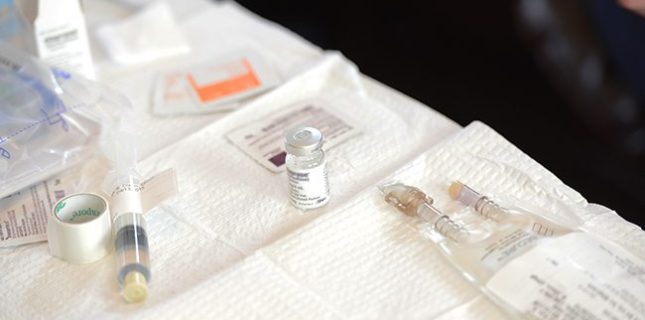Milrinone Helps PHS Support Failing Hearts at Home

 Roy C. Maynard, M.D., is the Medical Director for PHS. He serves as PHS’s clinical leader, working with the team to provide consultation and advice to ensure quality and effective care to children and their families in their own homes. He also leads implementation of clinical policies, procedures and programs to further enhance the best possible care for each child. He is a Neonatologist and Pediatric Pulmonologist, and serves as a staff physician at Children’s Hospitals and Clinics in Minneapolis, Minn.
Roy C. Maynard, M.D., is the Medical Director for PHS. He serves as PHS’s clinical leader, working with the team to provide consultation and advice to ensure quality and effective care to children and their families in their own homes. He also leads implementation of clinical policies, procedures and programs to further enhance the best possible care for each child. He is a Neonatologist and Pediatric Pulmonologist, and serves as a staff physician at Children’s Hospitals and Clinics in Minneapolis, Minn.
Taking care of the child at home is important for families to normalize their lives when caring for a child with medical complexities. Home based therapies in lieu of hospitalization also decreases costs, improves the patient experience, and decreases risk of hospital associated errors or infections. More novel approaches to treating diseases that can be performed outside of the hospital are taking health care home.
Expanding use for Milrinone
Milrinone, (a drug that increases heart muscle contractility, or its ability to self-contract), is normally reserved for short-term management of heart failure in hospitalized intensive care unit patients. In 2006, the first report of using Milrinone in pediatric outpatients was published. Since 2006, several other reports have appeared in the medical literature describing different centers’ experiences with continuous outpatient infusions of this drug in children.
Outpatient intravenous Milrinone is used as a destination therapy for children awaiting heart transplant. This therapy improves their heart function and enhances survivability while waiting for a suitable donor heart to become available.
Milrinone is also used for palliative care in pediatric patients with congestive heart failure associated with other diseases of the heart muscle, some of which may be associated with genetic disorders. Although potential side effects of Milrinone therapy may include heart arrhythmias, low blood pressure and headaches, published studies to date support this as safe and cost effective in selected children with heart failure.
Studying outcomes
In 2008, just 2 years after the first published report, PHS’s home infusion team provided Milrinone for the first time as a home based IV therapy for a child. Since then 10 other PHS pediatric patient referrals have benefitted by this intervention.
To better understand the outcomes of PHS Milrinone patients, a retrospective and institutional review board approved study is being undertaken. Data obtained will allow comparison of PHS outcomes to previously published reports of children with Milrinone therapy. The goal to improve the quality of home based care is vital when taking care of the child.
PHS aspires to pioneer safe and effective therapies for children in the home.
Originally published: July 10, 2015


